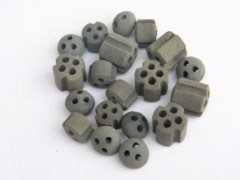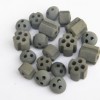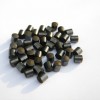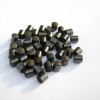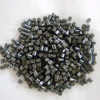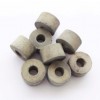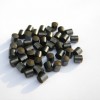Main Application:
With high temperature calcium aluminate supporter, the reforming catalyst is a sinter of hydrocarbon steam, including nickel as its main active content. It is mainly used for the devices following of primary reformer, which promotes the reaction between hydrocarbons with steam to produce H2, CO, CO2.
1. Synthetic ammonia unit, methanol unit and hydrogen unit, using natural gas as feed gas
2. Synthetic ammonia unit and methanol unit, using coke-oven gas as feed gas
3. Methanol unit and hydrogen unit, using associated gas of oilfield, refinery gas and acetylene as feed gas
4. Hydrogen unit, using light oil as feed gas
Features:
1. The ratio of the micro pore in the catalyst is high; its modified auxiliary is rare earth; and it is uneasy to be carbon deposition and pulverization.
2. It has good and steady activity, especially at low temperature.
3. It has streamlined appearance and pore structure, big effective surface area and high apparent activity, and low resistance of the bed. Because of its excellent reduction performance in the unit, the feed gas can reduce in the furnace directly.
Operating conditions:
Operating temperature: 410~950℃
Pressure: normal~5.0MPa
Steam to carbon ratio: ≥2.5
Carbon space velocity: 600~2000h-1
Physical and chemical performances:
|
Type
|
Size
|
(NiO%)
|
Activity
|
Strength before reduction N/Gr
|
Percentage of low strength volume %
|
|
CH4(V%)
|
|||||
|
Z118-3Y
|
3-hole oval
Ф14×11
|
≥14.5
|
≤66.0
|
≥350
|
≤5.0
|
|
Z118-4Y
|
3-hole and 3-fluted dentate drum
Ф14×11
|
≥14.5
|
≤66.0
|
≥350
|
≤5.0
|
|
Z118-5Y
|
4-hole and 4-fluted dentate drum
Ф17×17
|
≥14.5
|
≤23.0
|
≥400
|
≤5.0
|
Packing and transportation:
1. Packed with plastic film bag with plastic packing seal, 50 kg net weight or liter a barrel, and barrels are marked tags within the catalyst model, batch number, net weight, production team, production date, etc.
2. In the transportation process should either be paid attention to in the keep away from moisture, or avoid rolling, falling touch or intensely shocking, and should prevent the rain facilities; Products should be stored in a dry and ventilated place, against pollution or moisture.

